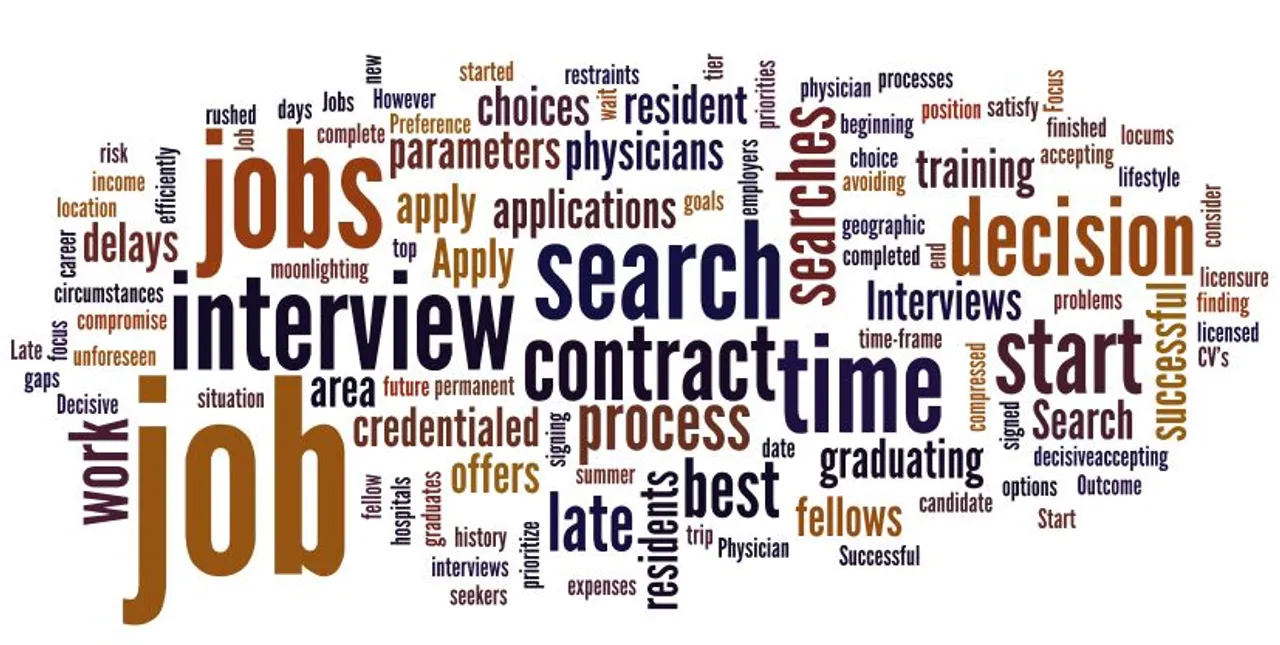Late Start on Your Physician Job Search? Four Tips for a Successful Outcome
 By mid-December most of this year’s graduating resident and fellow physicians have either finished their job searches and signed a contract, or have at least completed their interviews and are well on their way towards accepting their new jobs. Most of these future physicians began sending out their CV’s in June or July, and they have had the benefit of taking their time and exploring their options before making a decision. However, each year circumstances cause a significant number of residents and fellows to get a late start on their job searches, and they find themselves needing to complete their job search and interview process in a highly compressed timeframe. These physician job seekers who are getting a late start should keep in mind that their interview to contract process will probably take at least 90 days. After signing a contract, they will likely still need to obtain state licensure and be credentialed at one or more hospitals, which will also take a significant amount of time. If you are a resident who graduates this coming summer, and you are just beginning this process, here are some steps you can take to help ensure a successful job search.
By mid-December most of this year’s graduating resident and fellow physicians have either finished their job searches and signed a contract, or have at least completed their interviews and are well on their way towards accepting their new jobs. Most of these future physicians began sending out their CV’s in June or July, and they have had the benefit of taking their time and exploring their options before making a decision. However, each year circumstances cause a significant number of residents and fellows to get a late start on their job searches, and they find themselves needing to complete their job search and interview process in a highly compressed timeframe. These physician job seekers who are getting a late start should keep in mind that their interview to contract process will probably take at least 90 days. After signing a contract, they will likely still need to obtain state licensure and be credentialed at one or more hospitals, which will also take a significant amount of time. If you are a resident who graduates this coming summer, and you are just beginning this process, here are some steps you can take to help ensure a successful job search.
- Focus Your Search – If you are starting your job search late, then you need to focus on your priorities. Know your biggest goals, whether they are based on location, income, lifestyle, or other parameters and prioritize them. Apply to jobs that satisfy the parameters that you do not wish to compromise.
- Don’t Apply to Jobs in Order of Preference – It’s best to move all of your applications forward at the same time. It will be tempting to apply to your top choices first and wait to apply for a second tier of jobs. However, delays from your top choices could lead to a rushed decision on your second tier of jobs. Moving applications forward at the same time will help with your time restraints. Interviews and then contract offers will occur at the same time, and you will then be more likely to make the best possible decision.
- Consider Combining Interviews – If you are focused on just one geographic area, and multiple jobs within that area, consider trying to set up more than one interview on one trip. This is fairly common, and the vast majority of employers will agree to split your interview expenses because they understand your need to interview for multiple jobs and to use your time efficiently.
- Be Decisive – When the offers do start coming in, be ready to make your decision. You still have a long way to go in order to get credentialed and licensed, and unforeseen problems with those processes can result in delays of your start date. Also, you don’t want to risk another candidate for the job being more decisive than you and accepting your best choice while you are making up your mind.
We hope this post is helpful to some graduating residents and fellows who haven’t yet started their job searches. For most people in this situation, there is still time to have a successful job search and be able to start work at the end of training. If you don’t have a job set up at the end or your training, we suggest finding moonlighting or locums work while you continue your search for a permanent position, thus avoiding any gaps in work history right at the beginning of your career.
As always, please feel free to leave comments or questions below, and best of luck with your job searches!
Related Posts
